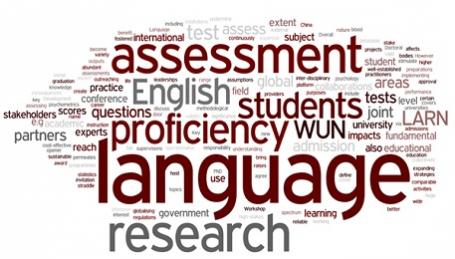What is the FSI Language Proficiency Test?
Across the US government, a wide variety of proficiency tests are in use. For example, the Defense Language Proficiency Test is the test of record within the Department of Defense. For the Departments of State, Commerce, Agriculture, etc., the FSI Proficiency Test is the recognized language test.
What standard is this proficiency test based on?
All US government proficiency tests are based on a proficiency standard called the “Interagency Language Roundtable” (ILR). Although the ILR description covers all language-related skills such as Speaking, Listening, Reading, Writing, Translation, and Intercultural Competency, most US government proficiency tests only examine the Speaking, Listening and Reading skills. For the FSI Proficiency Test in particular, only Participatory Speaking and Reading Comprehension skills are tested and measured.
How can I best prepare for it?
Everything you do during your daily studies can help you raise your language level: learning new vocabulary, correcting grammatical errors, increasing your fluency, and improving your pronunciation. However, there are some particular learning and test-taking strategies that can most efficiently improve your overall performance:
- Focus your studies on subjects you have particular knowledge and interest in or on topics you come across in your career. At the same time, it is important to touch base and have at least passing knowledge of current events in many fields.
- Work with your instructor to prepare expressions and/or specialized vocabulary terms that can be used when discussing a variety of topics. For example, transition expressions such as “on the contrary” can be used in a variety of settings.
- It’s important to get off to a good start on test day. At the beginning of the test, you will be asked to introduce yourself. To best prepare, make sure to master vocabulary that is related to your hobbies, family life, travel experiences, work history, etc. Ask your instructor to help you review, polish, and expand your language skills related to the aforementioned areas.
- During the test, actively participate in the conversation. Feel free to ask questions, introduce topics, and ask for clarifications if necessary. Don’t stop the conversation by saying simply “yes” or “no”. Give details. Explain your point. Make comparisons. If you are not a talkative person, make an extra effort for the test.
- Natural pauses to think of what you want to say are perfectly acceptable. Even native speakers do that.
- Sometimes examinees rack their brains searching for a particular word which they feel they must use, and end up paralyzing their thoughts as a result. If you do get hung up, find a simple way around this hiccup and go on with the conversation.
- Don’t try to impress the testers with your knowledge about a particular subject. The testers are not looking for what you know, but rather how you say it.
- If you are hopelessly lost in a sentence, don’t be afraid to stop and collect yourself. Say something like “Let me tell you again ‑ it is a bit complicated.” Then get back to it. Break your sentence into shorter sentences and carry the conversation through. Don’t apologize for your lack of ability in the language. Be positive. Let the tester’s judge.
- If you feel that certain portions of the test are difficult, do not panic. The testers are trying to bring you to a level where you feel pressure. The testers cannot determine your level unless they go beyond it.




